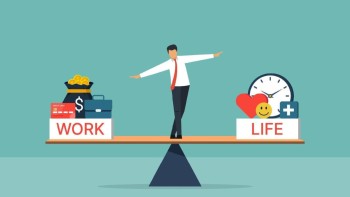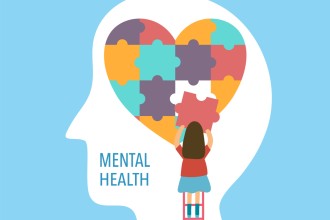In our fast-paced, screen-filled world, we often forget what health truly means. For many, it’s simply the absence of illness. But real health is so much more. It’s about how we feel, how we function, and how we show up for ourselves and others every single day.
So, what does it actually mean to be “healthy”? Is it about eating salads? Hitting the gym every morning? Avoiding sugar? Or is it something deeper, something more personal?
Let’s explore what true health really means—and how you can start building a healthier life, one habit at a time.
1. Health Is More Than Just Physical
When people talk about health, they often focus on the physical body—weight, diet, exercise, sleep. And yes, these are essential. But your mind, emotions, relationships, and even your environment play a major role in your overall well-being.
In fact, the World Health Organization (WHO) defines health as:“A state of complete physical, mental, and social well-being, and not merely the absence of disease or infirmity.”
That means health isn’t just about not being sick. It’s about feeling well, living fully, and thriving—physically, mentally, and emotionally.
2. The Pillars of Good Health
To understand health better, let’s break it down into five key pillars that work together to support a balanced, fulfilling life.
A. Physical Health
This is the foundation. It includes:
- Regular movement: Whether it’s walking, yoga, sports, or dancing, movement improves heart health, muscles, and energy.
- Balanced nutrition: Eat whole foods—fruits, vegetables, whole grains, lean proteins, and healthy fats. Avoid overly processed junk.
- Sleep: Your body heals during sleep. Aim for 7–9 hours of quality rest each night.
- Hydration: Water helps with digestion, brain function, and energy. Keep a bottle nearby and sip throughout the day.
- Check-ups: Preventive care, like blood pressure and cholesterol checks, keeps problems in check before they grow.
💡 Quick Tip: Don't chase perfection:chase consistency. Small, daily actions matter more than big, occasional ones.
B. Mental and Emotional Health
Your thoughts and feelings affect every part of your body. Mental health is just as important as physical health.
- Manage stress: Chronic stress can lead to fatigue, heart problems, and anxiety. Meditation, journaling, or even short walks can help.
- Express emotions: Bottled-up feelings can turn into tension or illness. Find someone you trust, or seek professional support.
- Practice mindfulness: Being present in the moment reduces anxiety and sharpens focus.
💡 Try This: Each night, write down 3 things you’re grateful for. It rewires your brain toward positivity.
C. Social Health
Humans are social creatures. The quality of your relationships can affect your health more than you think.
- Build strong connections: Family, friends, or community groups can give you purpose and belonging.
- Communicate openly: Express your needs, listen well, and resolve conflicts calmly.
- Avoid toxic environments: Energy matters. Surround yourself with people who uplift and support your growth.
💡 Reminder: It’s okay to outgrow people. Choose peace over pressure.
D. Lifestyle Choices
Your daily habits shape your future health. Ask yourself:
- Are you getting enough sunlight and fresh air?
- Do you take breaks from screens?
- Are you smoking or drinking excessively?
- Do you have boundaries with work and rest?
Small lifestyle changes,like walking instead of driving, or replacing soda with water—can bring long-term benefits.
E. Spiritual and Purposeful Health
You don’t have to be religious to be spiritual. Spiritual health is about finding meaning in life.
- Spend time in nature
- Reflect or meditate
- Connect with your values and passions
- Do things that bring you joy
When your life aligns with your values, your mental, emotional, and even physical health improves.
3. Common Myths About Health
There’s a lot of noise out there. Let’s bust a few health myths:
-
Myth: Health = Thinness
➤ Truth: People of all sizes can be healthy. Focus on strength, energy, and function—not size.
-
Myth: You need to work out 2 hours a day
➤ Truth: Just 30 minutes of moderate movement daily is enough to improve your health.
-
Myth: Mental health isn’t as serious as physical illness
➤ Truth: Mental health conditions are real. Depression and anxiety can affect sleep, appetite, immune response, and more.
4. How to Start Your Health Journey
You don’t need fancy diets, expensive supplements, or extreme routines. Health starts with simple steps done consistently.
Here’s a gentle beginner’s plan:
| Day |
Small Step |
| Monday |
Go for a 20-minute walk |
| Tuesday |
Drink 8 glasses of water |
| Wednesday |
Try a no-sugar day |
| Thursday |
Write in a journal before bed |
| Friday |
Call a friend or family member |
| Saturday |
Spend 1 hour outdoors |
| Sunday |
Prep a healthy meal for the week |
Even one or two of these steps a week can build momentum. The key is patience and persistence.
5. Why It Matters
Why should you care about health?
Because your health affects:
- Your ability to work, think, and create
- Your relationships with others
- Your energy, mood, and motivation
- Your future—how you age and how long you live
Good health doesn’t just help you live longer,it helps you live better.
6. Final Thoughts: Make Health a Lifestyle, Not a Project
Health isn’t a 30-day challenge or a one-time goal. It’s a way of living; a lifelong relationship with your body, mind, and soul.
You don’t need to be perfect. You just need to be aware, intentional, and kind to yourself along the way.
If you:
- Sleep enough
- Eat well most of the time
- Move your body regularly
- Protect your peace of mind
- And nourish your relationships...
You are doing amazing. Keep going.
✨ Your health is your foundation for everything else. Honor it, nurture it, and it will support you for life.



-1758278198.jpg)



-1754043297.webp)






-1758278198.jpg)











